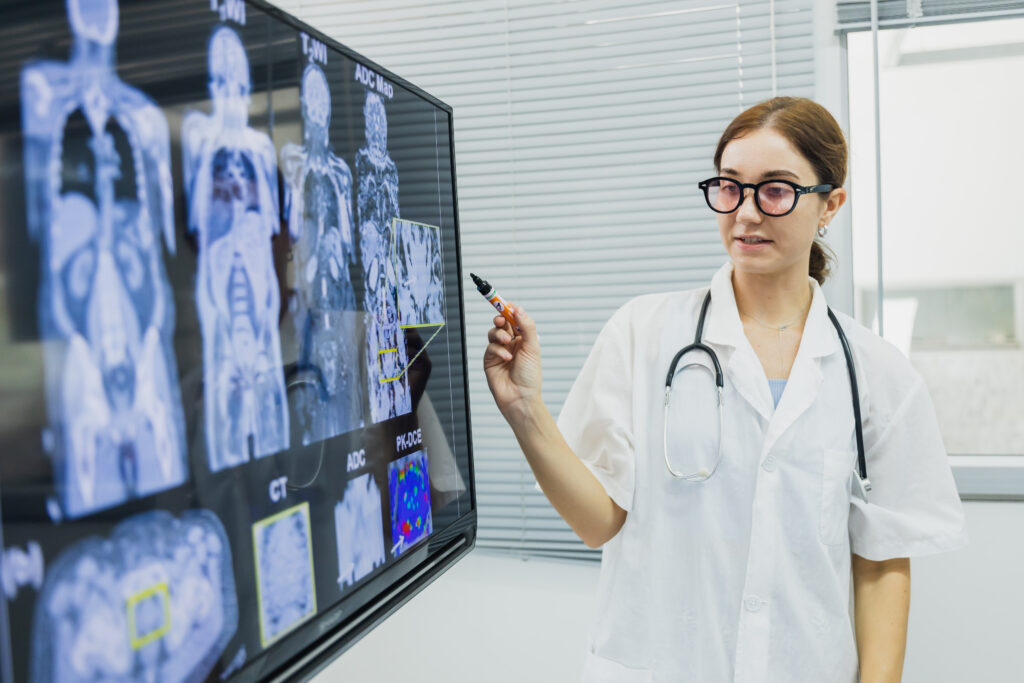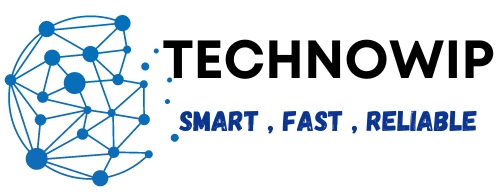Introduction
Artificial intelligence (AI) is revolutionizing health care and offering exciting breakthroughs in diagnosis and treatment. However, AI may bring along with it some significant obstacles which need to be carefully considered; including potential downsides. We will look into disadvantages of ai in healthcare.

Problem: The Hidden Complexities of AI in Healthcare
AI, despite its enormous potential, can complicate healthcare. The AI presents a number of problems, ranging from algorithmic bias to data privacy issues and the cost involved in implementation. AI adoption is complicated by misdiagnoses and data breaches.
We’ll explore these shortcomings, using expert insight and real-world examples to illuminate why AI isn’t always as good for healthcare as it appears.
1. Algorithmic Bias and Inequality in Care
AI systems rely heavily on historical data when making predictions or recommending changes. This data can be biased, whether due to incomplete datasets and systemic problems or because of biases in the original dataset. AI algorithms may perpetuate inequities or worsen them. A widely cited study from 2019 revealed, for example, that an AI used by U.S. hospital systems was less likely than white patients to send Black patients to specialized care.
The bias is caused by the fact that historical data on healthcare often underrepresents minorities. In turn, using biased AI can result in unequal outcomes and marginalize vulnerable groups.
A nurse I spoke with once expressed her disillusionment with the AI software she was forced to use. She explained how the AI tool repeatedly reported false positives when it came to certain ethnicities. The patients’ frustration was not only frustrating but also heartbreaking. This conversation has stayed with me.
2. Cyber threats to data privacy and security
The healthcare data that a person has access to is one of the most private and sensitive pieces of information. AI systems need a large amount of patient data to train, increasing the risks of data breaches. A ransomware infection in 2021 compromised millions of patient’s data. Hackers took advantage of vulnerabilities to expose sensitive medical records and undermine trust in AI.
The lack of clear and robust regulations in AI healthcare exacerbates these risks. The potential for catastrophic security breaches increases as AI systems integrate.
The idea that my medical records could be leaked is terrifying. Identity theft is not the only concern; there’s also the risk of losing something very personal. I’m cautious about trusting AI systems because they aren’t 100% foolproof.
3. The High Costs of Accessibility
AI technology is often expensive. The costs of developing, maintaining, and implementing AI systems are significant. These costs are prohibitive for smaller clinics and hospitals. AI can be a barrier to access for those who are not well-funded.
Consider rural clinics located in countries that are developing. These facilities often lack the necessary infrastructure for AI technology, which further increases the gap in healthcare. In theory, AI could improve health outcomes globally. However, the high cost of AI often limits its use to wealthy regions.
When I was in a community clinic, the staff seemed overworked. The staff could have used AI to reduce their workload, but it was out of reach. These moments make me wonder about the fairness of AI adoption.

4. Absence of human oversight
AI in healthcare has become an increasing source of concern, as its use may lead to overreliance on algorithms. While AI may be capable of analyzing data and offering recommendations, its lack of empathy and intuition makes patient care impossible – in some instances healthcare providers overrelying on AI rather than trusting in their clinical judgment.
A diagnostic tool powered by AI mislabeled a cancerous tumor as benign in one instance. This oversight was only discovered after the patient experienced unnecessarily long treatment delays. It is important to keep human oversight at the forefront of AI applications.
Technology should not replace human expertise but rather enhance it. It’s impossible to replace a doctor’s intuition, that gut instinct they develop after many years of practice. The AI may be quick, but it is not always accurate.
5. The Challenges of Regulatory and Ethics
AI is a gray area in the healthcare industry. AI systems lack detailed guidelines on approval, use, and monitoring. It can result in inconsistent standards of quality and ethical issues.
Who is responsible, for example, if an AI makes a mistake? Who is responsible for an AI system’s mistake? Is the developer of the software, the hospital, or the healthcare providers themselves? Unresolved issues create legal and ethical uncertainty.
It’s still in the works. The European Union AI Act was one of the first attempts at regulating AI. Many countries are still working on establishing basic guidelines for AI, which leaves patients at risk.
It’s a question I have often asked myself. What would I feel if an AI mistake caused harm to a family member? It’s unsettling that there is no accountability. The safety net is a bit shaky, but we trust machines with our lives.
6. Possible Job Replacement
AI is a tool that can improve processes, but it’s also threatening to some healthcare careers. Automating repetitive jobs, such as medical transcription and basic diagnostic imaging, is becoming more common. It can result in job loss, especially for entry-level employees.
The impact of AI is not limited to the loss of jobs. As healthcare workers are required to learn new skills to adapt to AI-driven workflows, they will be under additional pressure.
First-hand, I have seen how automation of jobs affects people. My friend had to undergo retraining after she lost her job. The emotional cost was enormous. She did find a new career, but it wasn’t easy. The economy is not the only thing at stake; people’s livelihoods are also involved.
Solution: Finding a balance
A balanced approach is needed to address these problems. AI developers, policymakers, and healthcare providers must work together to:
- Improve Data Security: Use robust cyber security measures and follow clear protocols for handling data.
- To minimize bias, ensure that datasets are representative and diverse.
- Regulation of AI: Create comprehensive guidelines to ensure ethical and accountability compliance in the use of AI for healthcare.
- Train Healthcare Professionals: Give them the necessary training to use AI effectively.
We can minimize the risks and harness the AI benefits in the healthcare industry by addressing these concerns head-on.

The Challenges Ahead of AI in Healthcare – Risks, Ethics, and Equity
1. AI and Healthcare: Is it a double-edged sword?
The topic examines AI’s dual nature in the healthcare sector, both its benefits and its drawbacks. This topic explores how AI can solve problems and cause them, highlighting the importance of a balanced approach.
2. AI Bias – Unmasking in Modern Medicine
The book focuses on algorithmic bias, showing how underrepresented data or biased information can result in unequal outcomes for healthcare. The book explores real-life biases that affect minority groups.
3. Why AI’s Data Privacy Challenge Remains Major
This topic examines the dangers AI poses to data security. The topic discusses the increasing threat of data breaches and cyber attacks in the healthcare system, as well as the ethical implications that come with using patient data.
4. AI’s Hidden Costs in Healthcare – Who is Left Out?
The financial obstacles to AI adoption in healthcare are examined, especially for small hospitals and clinics. The report highlights the gap between rich and poor regions and questions AI’s fairness and accessibility.
5. Can AI Replace Human Intuition in Patient Care?
The topic discusses how AI cannot replicate the intuition, empathy, and judgment of medical professionals. This topic highlights cases in which over-reliance on AI led to incorrect diagnoses and adverse outcomes.

6. Ethics in AI-Driven Healthcare
The film explores the unresolved issues of AI, such as responsibility for mistakes, consent to data use, and moral implications when letting machines take life-altering actions.
7. Jobs Lost vs. AI and Healthcare Workers: Efficiency
The article discusses how automation could lead to the displacement of healthcare workers while also highlighting the importance of upskilling. This article investigates how AI affects the role and dynamics of medical workforces.
8. AI Failings in Global Healthcare
The focus is on inequities caused by AI in particular in settings with limited resources. The report examines the impact of AI implementation on the disparity between institutions with high funding and those who are underserved.
9. Balance Innovation and Risk In AI-Powered Medicine
The topic examines the struggle for AI to be as beneficial and risk-free as possible. This topic discusses regulations, ethical conduct and collaboration as essential elements in the safe integration of AI technologies.
10. Secure Healthcare Data in the Age of Artificial Intelligence
This article presents examples of cybersecurity strategies which are effective within healthcare settings, along with regulatory and technical measures necessary for protecting healthcare data against AI vulnerabilities.

Final Thoughts: Proceed with caution
AI offers incredible potential in healthcare, but also presents significant challenges and opportunities. From algorithmic bias to privacy concerns and high costs to ethical dilemmas – AI presents both opportunities and challenges for the healthcare industry that must be carefully managed through collaboration, regulation and investment. This will allow AI to complement human expertise rather than replace it.
Balance is the secret to success. Let’s not forget that as we move through this ever-changing landscape, technology must serve the human race and not vice versa.
FAQs
1. What is AI’s biggest drawback in the healthcare sector?
Algorithmic bias is the biggest problem, as it can result in unequal outcomes of healthcare for groups that are underrepresented.
2. What impact does AI have on data privacy?
AI is a risky technology due to its need for a large amount of patient information.
3. What is the cost of AI in Healthcare?
The cost of AI systems is prohibitive for smaller companies.
4. AI can replace medical professionals and doctors.
The AI cannot emulate the human expert’s empathy or intuition. The AI should not be used as a replacement for human knowledge, but rather to supplement it.
5. How will AI impact healthcare?
Cost of AI is prohibitive to clinics located in rural or underfunded areas. This results in an increasing gap between quality and quantity in healthcare.
6. AI and Healthcare: what are its ethical implications?
Key ethical questions include accountability for errors, consenting to data usage and making decisions during crises.
7. AI and job loss in Healthcare
AI technology can automate repetitive jobs and potentially replace some of them but also provide opportunities to upskill or create new roles.
8. What are the regulations governing AI in Healthcare?
There are currently no comprehensive rules, which leads to inconsistent AI deployments and uncertainty.
9. What can be done to reduce bias in AI-based healthcare systems?
By using representative datasets and auditing AI algorithms regularly for fairness, bias can be reduced.
10. How can AI safety be improved in the healthcare sector?
AI safety in healthcare is dependent on improving data security, setting up clear regulations, and having human oversight.

